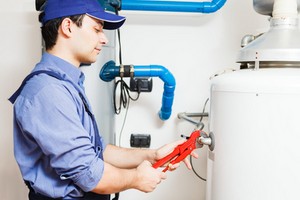4 Signs That Your Water Heater Might Be About To Fail
 The water heater in your home is easy to take for granted as long as it is working. Because it slips under most homeowner’s notice, most people have no idea that their water heater might be on the verge of failing. Luckily, there are signs you can be on the lookout for to know when your water heater is in need of serious Dallas water heating maintenance or may be nearing the end of its lifespan. By looking out for these signs, you can spare yourself a lot of disruption to your daily life and damage to your home caused by a failing water heater. We’ve included a short list of four warning signs that indicate your home’s water heater might be about to fail.
The water heater in your home is easy to take for granted as long as it is working. Because it slips under most homeowner’s notice, most people have no idea that their water heater might be on the verge of failing. Luckily, there are signs you can be on the lookout for to know when your water heater is in need of serious Dallas water heating maintenance or may be nearing the end of its lifespan. By looking out for these signs, you can spare yourself a lot of disruption to your daily life and damage to your home caused by a failing water heater. We’ve included a short list of four warning signs that indicate your home’s water heater might be about to fail.
Aging
It is absolutely essential that you keep track of how old your water heater is. To find it’s age, you can look for the serial number on the manufacturer’s sticker on the top portion of your water heater. Generally, most water heaters that are more than 10 years old are in the range to be replaced. It is generally not recommended that you wait to replace your old water heater until it begins leaking. By the time it starts leaking, it could already be causing damage to your home.
Rusty Water
If you notice the hot side piping of your water heater leaking rusty colored water into your home, it is a sure sign that your water heater is rusting from the inside out. Normally this is a precursor to your water heater developing a series of leaks as the rust will eventually eat its way through the outer casing. This problem can sometimes be attributed to galvanized piping if they have begun to rust as well, however. A good way to test whether the rusty water is from your piping or from your water heater is to drain a few 5-gallon buckets of hot water from your water heater. If, after the third bucket or so, you are still seeing rust-colored water, then the problem is most likely your water heater.
Rumbling Noises
As your water heater begins to age, it will inevitably begin to accumulate sediment deposits on the bottom of the tank. When this sediment is heated and reheated over time, it will gradually begin to harden, and this can sometimes result in rumbling or banging sounds coming from your water heater as it is heating up. When this begins to happen, it is a signal that your water heater has reached the end of its time of usefulness. This hardened layer of sediment at the bottom of your tank can reduce the efficiency of your machine, causing you to have to use more electricity and gas to heat your water, in addition to causing more wear and tear on your old water heater. The additional time your water heater is going to need to actually heat your water means that the metal on your tank is going to become more brittle, leading to a greater chance of leaks popping up.
Leaks Around Your Water Heater
If you notice any kind of moisture around your water heater, it is most likely caused by leaks or fractures in your tank. Before you go right off and replace your water heater, it is important to make sure that none of this water is coming from either the fittings or the connections to the tank.


















